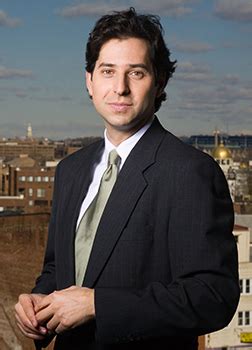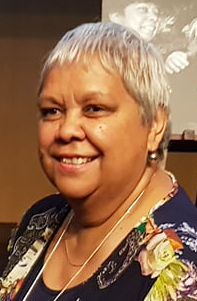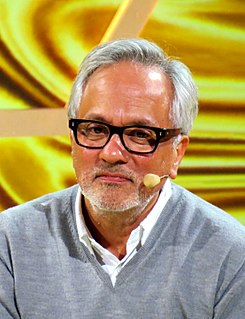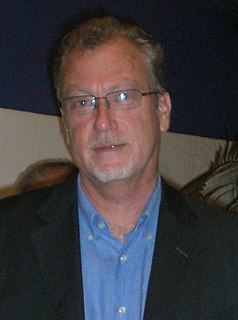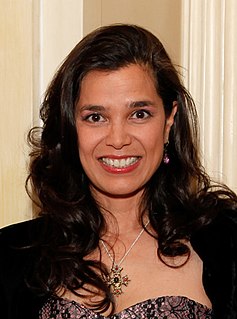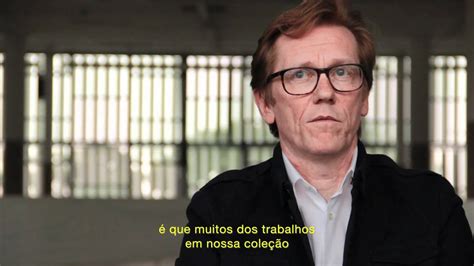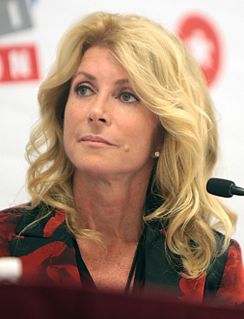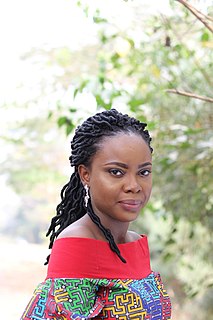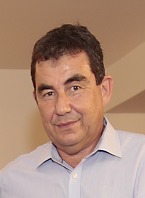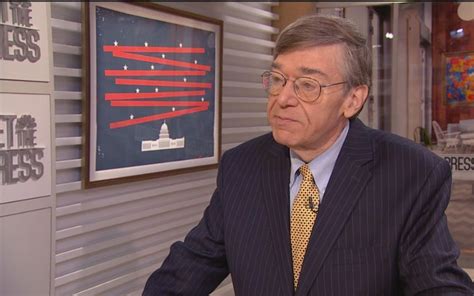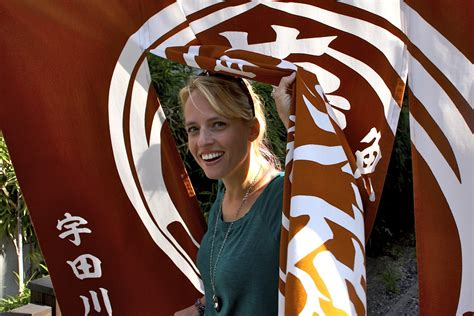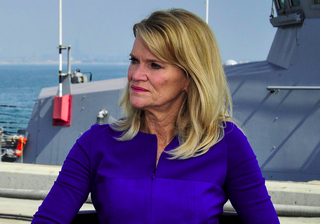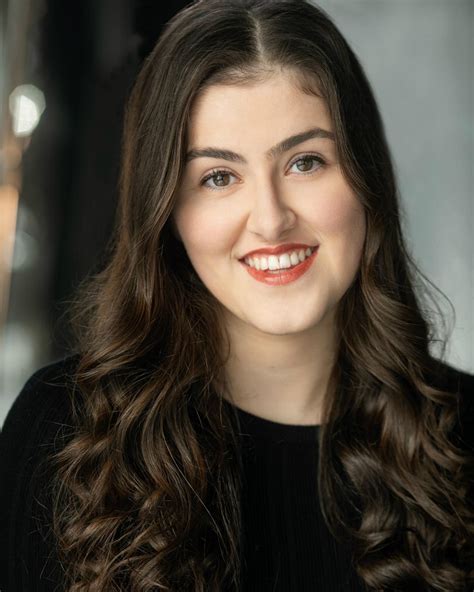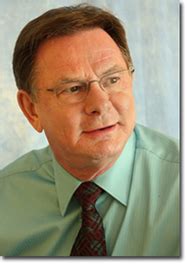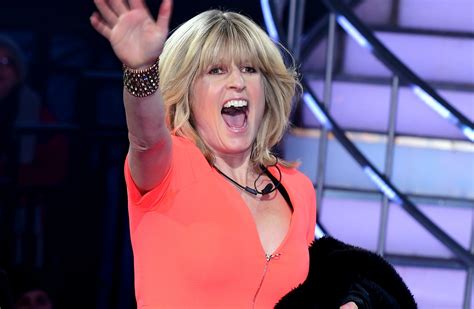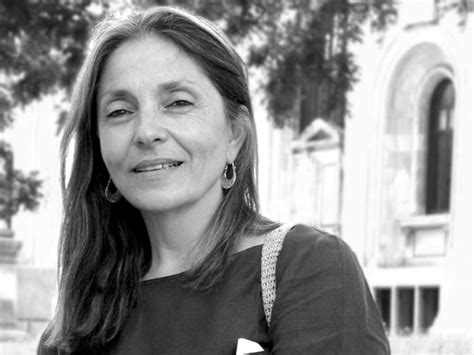A Quote by David Folkenflik
I think it's very important to be able to hear from our public leaders in ways that they can't entirely orchestrate, seeing them speak live and unscripted and take questions that they themselves haven't arranged ahead of time. I think this is a way in which citizens who are deciding what they think of their leaders who govern in their name, this is one of the ways in which they can evaluate how they feel about the quality of the leadership.
Related Quotes
When you coach and teach leadership, most people think about them. It's like you're the leader and how do you influence them. Clearly, leaders do take their followers, their flock, their enterprise, their business - whatever - hopefully to a better place. But I think the foundation of what makes really great leaders is they lead themselves, and they're conscious about knowing themselves and coaching and leading themselves in a very profound way. The simplest of us talk to ourselves. The question is, "Do we really lead ourselves?"
To my mind, you cannot speak about the need for leadership within our communities without being prepared to take on responsibility yourself. It's not enough to point the finger at those who have let us down and to expect others to come forward and fix our problems. Nor can anyone afford to call themselves a leader unless they truly have the interests of our community at heart. Too many people like to think they are leaders and too many are identified by the media as leaders who are not really leaders at all.
You have to work and think about how we can make this world a better place for all. This is what I'd really like to ask our young leaders. We will try as leaders of today to minimise the problems which we will hand over to you. But it is to you. You have to take ownership and leadership of tomorrow. For that to be possible, you have to strengthen your capacity and widen your vision as a global citizen.
Authenticity is about imperfection. And authenticity is a very human quality. To be authentic is to be at peace with your imperfections. The great leaders are not the strongest, they are the ones who are honest about their weaknesses. The great leaders are not the smartest; they are the ones who admit how much they don't know. The great leaders can't do everything; they are the ones who look to others to help them. Great leaders don't see themselves as great; they see themselves as human.
You can imagine over very long timescales, perhaps far beyond the multi-decade time scale, we might be able to ask very deep questions about why we feel the way we feel about things, or why we think of ourselves in certain ways - questions that have been in the realm of psychology and philosophy but have been very difficult to get a firm mechanistic laws-of-physics grasp on.
If sculpture can really deal with the body, because we all inhabit ourselves, and if sculpture can really do that, which it is supposed to be able to do, and through it ask questions, philosophical questions, about being, I think these are all things we work on, all of us in our different ways, so perhaps somewhere in there, there are moments where dumb objects can speak.
It is important to know how influential people think and perceive their countrymen, let's say, especially when you are talking about people in power. I think it can be very revealing how they regard themselves and their relationship or their responsibility to their countrymen. That is vital for us all to know and in order to be able to judge them and evaluate them.
As far as leadership goes, it's important to know that we don't have to act like men to be leaders. Since men have been all we have had to look to as examples of leaders, that's how we think we have to act. But generally that's not how we have to act. We just have to act like ourselves. We do have to maintain a collaborative spirit. Also, at the end of the day you do have to step into your own power and say, "Okay, I've listened to all of these different opinions, advice, and so forth, but I am deciding this and this is how we are going to go."
These artists all have some kind of message to the public. These messages can be quite personal, maybe about their own existential situation, and it can be about suffering, it can be about questioning of one's existence and so on. They are all telling us very genuine stories, which are touching us in different ways and they are enlightening in different ways. But it's not only the stories themselves, but it's how it is done - that creates the impact of the story. It is not what is said but how it is said. I don't think you can dissociate the content from the form.
I think that speaking is the most important thing we can do, but let's talk about what it means to speak effectively. We can talk in an echo chamber to our friends on social media and otherwise - and that's important, that's how we encourage and educate one another.But speech that leads to action is critical. And it doesn't sound very sexy, but one of the most important ways to speak in a way that makes an impact is to vote. Speaking at the ballot box is the most important place that we speak.
I'm still very interested in the things that happened in the '80s and the '70s because I think that they were very important years for Nigeria. In the '80s, we were under a military dictatorship for quite a while, and I think that the way we engage with our country as citizens was shaped in many ways by the events that took place in that time.
There's no necessary connection between maximizing social utility or economic wealth and creating a flourishing democracy. The first does not guarantee the second. The only way to create a flourishing democracy is to find ways to reason together about the big questions, including hard questions about justice and the common good, to reason together about these questions so that we as citizens can decide how to shape the forces that govern our lives.
Well, I think the way you feel as a teenager stays with you, forever. I really believe that. And we try to change and we hope that we change, but we don't really in big ways, in serious ways. I think the personality is formed at that time, for the good and for the bad. ... We all want to grow up and move on and appear to be different to people. And we want people to see us in a different way. But, I don't know, I think the personality is very, very strongly cemented, and we just bear whatever shortcomings we have and learn to live with it.
Increasingly, our leaders must deal with dangers that threaten the entire world, where an understanding of those dangers and the possible solutions depends on a good grasp of science. The ozone layer, the greenhouse effect, acid rain, questions of diet and heredity. All require scientific literacy. Can Americans choose the proper leaders and support the proper programs if they themselves are scientifically illiterate? The whole premise of democracy is that it is safe to leave important questions to the court of public opinion - but is it safe to leave them to the court of public ignorance?
